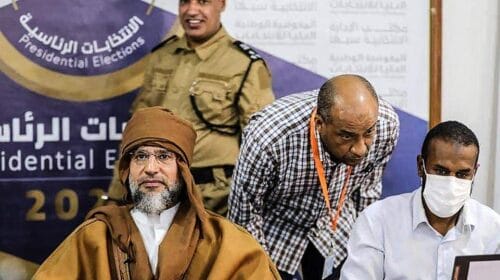Africa: Partnership, Engagement Highlight Africa Policy
Africa is the second-largest continent in both area and population, and it is “stunningly diverse,” Dory said. Africa comprises 54 nations in an area that includes triple-canopy jungle, the largest desert in the world, range lands, rift valleys and mountain ranges.
The people are even more diverse, with more than 2,000 different languages from five major groups spoken on the continent. From Arab and Muslim North Africa to Christian and Animist sub-Saharan Africa, it is a continent of contrasts.
Given this diversity, it is tough to develop a defense strategy to cover the whole continent, Dory said. The hallmarks for U.S. military strategy for the continent are based upon partnership and engagement. Military-to-military contacts on the continent are tailored to each country and proceed at the pace that each is comfortable with, she said.
The bottom line of the strategy is that while overall the U.S. military will shift focus to emphasize Asia, Dory said, Africa will not be ignored.
“When you start to focus on specific concerns, they are typically at the country level or regional level,” she said. “To develop opportunities for engagement with partners, you have to really drill down into the regional or country-specific base to do that.”
The underlying premise of U.S. strategy in Africa “is the idea that African security impacts on U.S. security, and African prosperity has benefits for American prosperity,” Dory said. “We do have shared interests in security and prosperity that allow us to engage with Africa at a time when people are talking about rebalancing to the Asia-Pacific and the importance of the Middle East.
“That doesn’t mean that we fail to have important interests with Africa,” she continued, “particularly in the security domain, and with economic possibilities as well.”
Africa seems to get into the news in the United States only when there is a natural disaster, famine or war, or when Americans are killed there. Parts of Africa – Mali, Somalia, Sudan and Libya — have serious problems. Other parts — generally those with stable governments with secure populations — have economies growing at six, seven or eight percent a year.
“When you look at the population in Africa, it is very youthful,” Dory said, and the nations of the continent need to develop opportunities for these young men and women.
“If these countries are able to translate the dynamism of these growing populations into productive output — agricultural or growing urbanization – they will do well,” she explained. “They need stability and security to succeed.”
DOD officials, obviously, follow security concerns. “Our worries are of growing extremism in parts of Africa,” Dory said.
This is a good-news, bad-news sort of situation. The bad news is that al-Qaida in the Maghreb is growing in Mali and other ungoverned or under-governed areas of North Africa, she said. “These are places with vast geography and insufficient governance and economic underdevelopment,” Dory said. “It’s a recipe for violent extremist organizations to begin to penetrate and take root.”
The good news is in Somalia, where the opposite is happening. Al-Shabaab, a terrorist group based there, has taken a severe beating. “In a geography that most Americans have long forgotten — they remember Blackhawk Down – there are really some very encouraging signs,” Dory said.
Regional forces, with international aid, have squeezed al-Shabaab out ofits Somali haven. Earlier this year, international forces kicked the group out of Mogadishu, Somalia’s capital. Earlier this month, Kenyan forces flushed al-Shabaab out of Kismayu, the country’s second-largest city.
“The key factor is the neighbors and region stepping up,” Dory said. “For the past five years, the neighbors were unwilling to allow Somalia to continue to fester.”
A second factor has been the support of the international community, “because the neighbors alone would not have been able to resource the effort,” she said.
A third factor is the role of the United States, which is to train, advise and assist the troop-contributing countries from a security perspective, she said.
“The final factor was the sense of strategic patience — that this was going to take a period of time, that you have an African-led effort being supported by the international community, and that it will unfold on its own timeline and [therefore] requires a certain amount of patience,” Dory said.
Those same ingredients helped in the antipiracy task force off Somalia’s coast, she noted. A “coalition of the willing” from the international community — including the United States, China, Japan, Pakistan, India, Turkey and European nations — has worked with regional nations to counter pirates operating from Somalia and in the Gulf of Aden. There have been no successful attacks for the past six months, Dory said.
“The threats, though, don’t go away completely; they are displaced somewhat,” she added. “In piracy, some have moved to look for more hospitable shores — to Yemen or the nations nearer the Mozambican Channel.”
On land, she said, the terrorists moved to Mali or Sudan.
The same patient, careful, thoughtful approach that worked in Somalia can work in other areas, Dory maintained. Partnership programs and engagement with individual countries and regional coalitions can make Africa a more stable and secure continent, she said, and this will make America more secure as well, Dory said.
Source: U.S. Department of Defense



